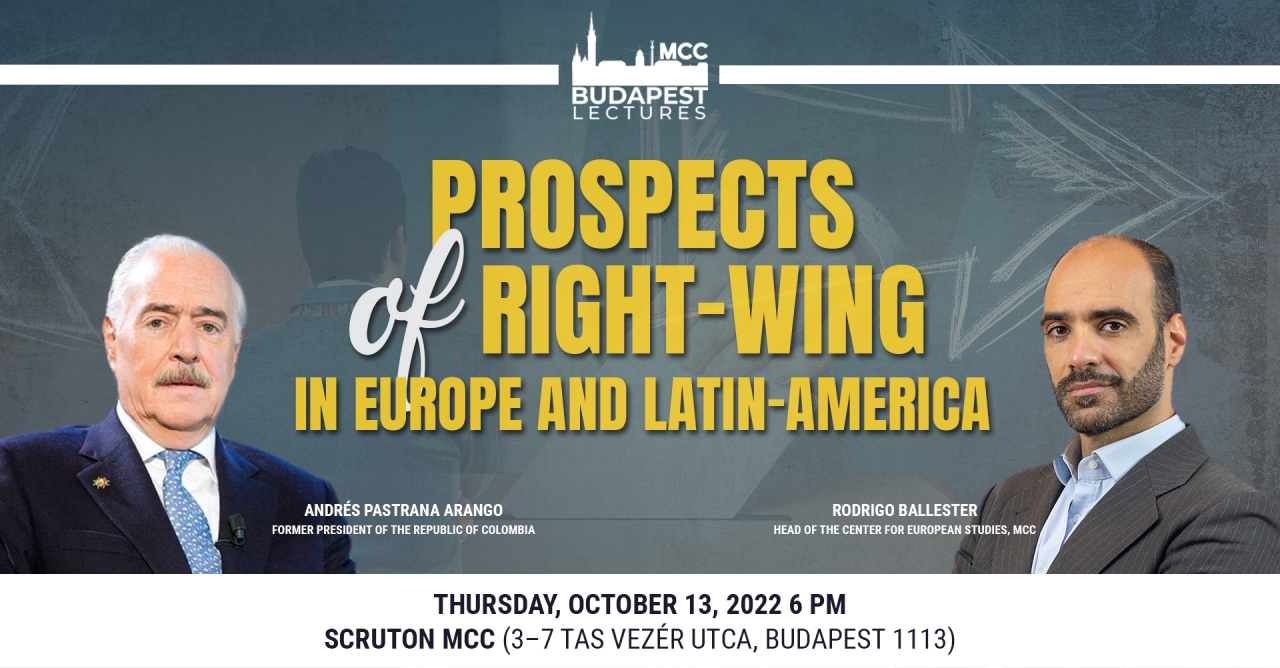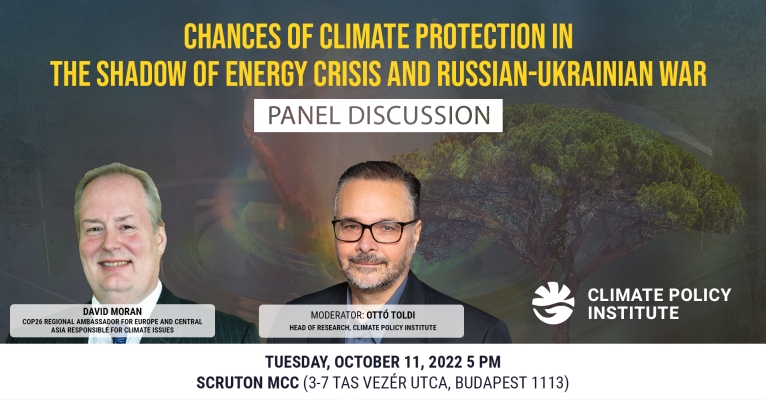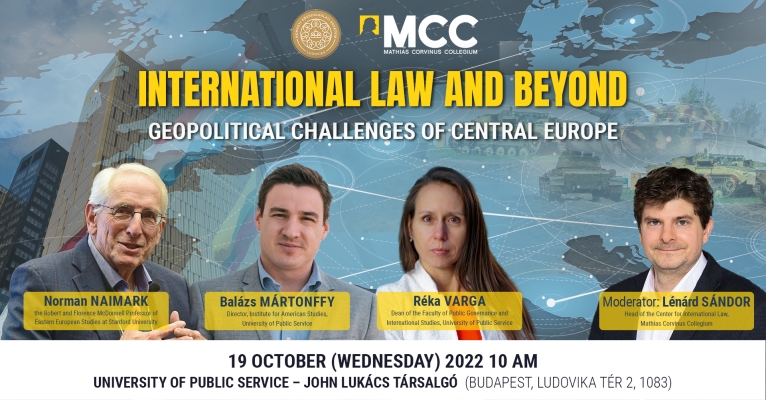The elections of the past few weeks have kept Europe and Latin America on their toes, as the right-wing parliamentary elections in Sweden and Italy and the ongoing presidential elections in Brazil are expected to shift the international balance of power. Among other things, we look at how the future of international relations will be affected by the rise of the right wing and whether there will be further shifts in world politics.
6.00 – 6.45 PM Moderated discussion
- Andrés Pastrana Arango, former president of the Republic of Colombia
- Moderator: Rodrigo Ballester, Head of the Center for European Studies, MCC
6.45 – 7.00 PM Q&A
H.E. ANDRÉS PASTRANA ARANGO: Born in 1954, Andrés Pastrana Arango was President of the Republic of Colombia from 1998 to 2002. He began his political career in 1982, by gaining a seat on the local Bogotá council. Before becoming President in 1998, he was also President of the City Council of Bogotá; he was the first elected Mayor of Bogotá (1988-1990) President of the Latin American Chapter of IULA (International Union of Local Authorities); Vice President of UCCI (Ibero-American Union of Capital Cities); Founder of the Party Nueva Fuerza Democratica. Senator and Presidential Candidate in 1994. During his presidency, Mr Pastrana made some important steps in with his negotiations with FARC and ELN. His administration also proposed and initially oversaw the implementation of Plan Colombia aid package and anti-narcoterrorist strategy. Mr Pastrana graduated as a Lawyer from the University of Rosario in Bogotá. He was a fellow at Harvard University Centre for International Affairs. He founded a magazine called Guión and a television news programme called Noticiero TV Hoy. He was Director of TV Hoy News from 1980 to 1987. He was twice awarded with the King of Spain award for journalism. Currently, Mr. Pastrana is the president of the Centrist Democrat International (CDI)
RODRIGO BALLESTER: He graduated in law from San Pablo University in Madrid, was an Erasmus student at Augsburg University in Germany, and obtained a Master's degree in EU law (LL.M, mention très bien) in 2002 from the College of Europe institute. He started his career as a teaching assistant at the College of Europe and after two years joined the US law firm Latham and Watkins, specialising in European competition law. Then he continued his career at the European Parliament, where he worked for two years in the Legal, Market and Home Affairs section of the Spanish delegation of the European People's Party (Partido Popular). In 2008, he continued his career at the European Commission, following a successful competition that was open to the public. He started his career in the DG for Justice and from 2011 he worked in the DG for Home Affairs, where he was responsible for the external aspects of the EU's migration policy towards Morocco and sub-Saharan Africa. Between November 2014 and December 2019, he joined the Cabinet of EU Commissioner Tibor Navracsics at the European Commission, where he was responsible for primary and secondary education. His activities included the expansion of entrepreneurship education in the EU and he was the lead organiser of the 2018 and 2019 European Education Summits. He has also been responsible for liaising with the European People's Party and has been a frequent speaker at debates, meetings and conferences. Since 2010, he has been a guest lecturer in EU law at the Institut d'Etudes Politiques in Paris.


